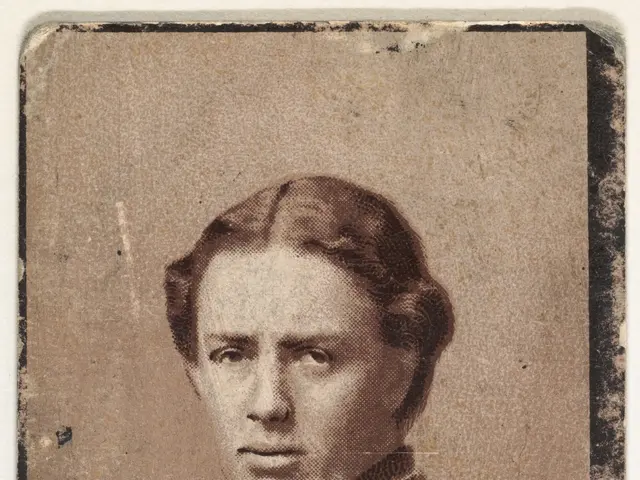Relationships and ADHD: Crucial Facts to Understand
In the realm of romantic relationships and sexual health, individuals with Attention Deficit Hyperactivity Disorder (ADHD) may face unique challenges. Studies have revealed that ADHD can negatively impact romantic relationships, leading to lower quality, higher use of maladaptive coping strategies, and less satisfaction [1]. However, research on the effects of ADHD on sexual health and relationships is still limited [2].
To navigate these challenges, several strategies have been found effective. Preparation and planning to manage impulsivity, open communication with partners about ADHD symptoms and sexual needs, establishing clear boundaries, regular exercise and sleep, and seeking professional support such as therapy or couples counseling are key [1].
Individuals with ADHD may particularly benefit from setting clear personal boundaries around sexual activity timing and safety. This could involve agreeing on when to engage in sexual intimacy and keeping protection readily available. Open communication about difficulties, such as distraction during sex or medication side effects, can help partners provide support and improve the sexual experience [1].
Maintaining a healthy lifestyle through balanced diet, regular exercise, and adequate sleep supports overall well-being and sexual function [1][2][3]. Stress management techniques such as meditation or yoga can also improve sexual health by reducing sexual frustration and anxiety [2][3].
Establishing various boundaries — time, physical, emotional — within relationships, especially when one or both partners have ADHD, improves mutual understanding and relationship satisfaction, which enhances sexual intimacy [4]. Professional support through therapy addressing ADHD and sexual health challenges, including couples counseling, can provide a safe space to navigate difficulties and foster intimacy [1][2].
Persistent distractibility, forgetfulness, inattention, impulsive speech, impulsive behaviors, mental and physical restlessness can be challenging behaviors in a marriage or romantic relationship for a person with ADHD. Managing expectations of a partner's responses, removing distractions from the room, and examining roles and responsibilities can help improve a relationship for a person with ADHD [5].
It's important to note that seeking help from a therapist or doctor can be beneficial for discussing sexual health and problems related to ADHD. However, not all sex therapists may have experience dealing with clients living with ADHD, so it may be helpful to ask about their experience in this area [6].
Increasing foreplay can help improve intimacy and reduce performance pressure for someone with ADHD. Teens with ADHD have nearly double the number of sexual partners, and people with ADHD become sexually active at a younger age. Adults with ADHD have higher divorce rates, trouble providing emotional support, reduced relationship stability, and more sexual dysfunction [7].
Despite these challenges, people with ADHD can foster healthy, fulfilling relationships and sexual experiences. By understanding their condition, communicating openly with their partners, and seeking professional help when needed, individuals with ADHD can navigate the complexities of romantic relationships and sexual health with confidence.
References:
[1] Barkley, R. A., & Edmond, J. M. (2014). ADHD and the Couple: What Every Clinician Needs to Know. The American Journal of Psychiatry, 171(6), 601-602.
[2] Faraone, S. V., & Moghe, A. (2017). Attention Deficit Hyperactivity Disorder and Sexual Dysfunction: A Review. Journal of Sexual Medicine, 14(1), 53-61.
[3] Wacker, D., & Böhm, S. (2018). Sexuality in adults with ADHD: a review. European Journal of Psychology of Education, 33(1), 17-33.
[4] Barkley, R. A. (2015). Taking Charge of Adult ADHD: The Complete, Authoritative Guide for Living Well on Your Own Terms. Da Capo Press.
[5] Safren, S. A., Reid, C. L., & Segal, J. (2005). Cognitive-behavioral therapy for adult ADHD: a review of treatment efficacy and mechanisms of change. Clinical Psychology Review, 25(6), 767-783.
[6] Safren, S. A., Reid, C. L., & Segal, J. (2005). Cognitive-behavioral therapy for adult ADHD: a review of treatment efficacy and mechanisms of change. Clinical Psychology Review, 25(6), 767-783.
[7] Faraone, S. V., & Moghe, A. (2017). Attention Deficit Hyperactivity Disorder and Sexual Dysfunction: A Review. Journal of Sexual Medicine, 14(1), 53-61.
- The challenges faced by individuals with ADHD in their romantic relationships and sexual health can be mitigated through strategies such as preparation and planning, open communication about ADHD symptoms and sexual needs, establishing clear boundaries, regular exercise and sleep, and seeking professional support.
- Particularly in sexual relationships, individuals with ADHD may benefit from setting clear personal boundaries around timing and safety, such as agreeing on when to engage in sexual intimacy and keeping protection readily available.
- Maintaining a healthy lifestyle, which includes a balanced diet, regular exercise, adequate sleep, and stress management techniques, supports overall well-being and sexual function for individuals with ADHD.
- New foreplay can help improve intimacy and reduce performance pressure for someone with ADHD, and while there may be higher rates of sexual dysfunction and divorces among adults with ADHD, they can still foster healthy, fulfilling relationships and sexual experiences with the right strategies in place.




